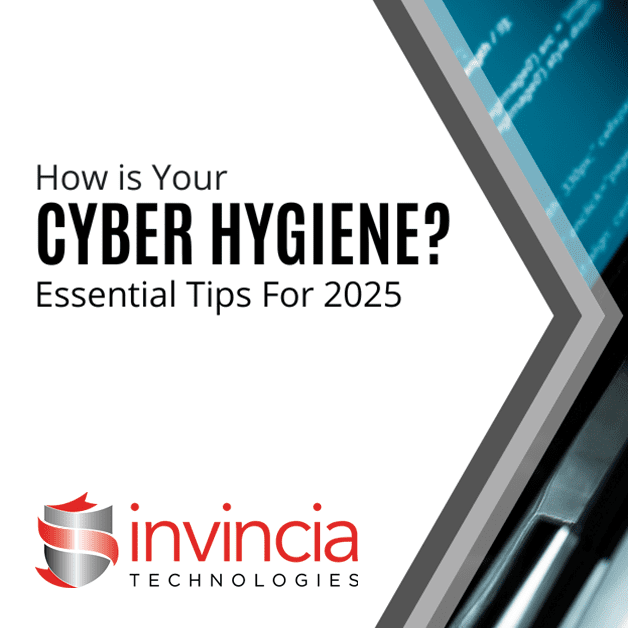Cyber hygiene is crucial it’s like brushing your teeth, but for your digital life. Good online habits can protect you from hackers and keep you safe on the internet. Let’s explore simple ways to stay safe online in 2025.
What is Cyber Hygiene?
Cyber hygiene refers to how you care for your online presence, including keeping your devices and personal information secure. Just like washing your hands protects you from germs, good cyber hygiene prevents digital threats like viruses and hackers.
Why is it Important?
Cybercriminals are always finding new ways to steal your information or damage your devices. Practicing good cyber hygiene helps prevent these threats, keeping your personal details safe and your gadgets working smoothly.
How Can You Improve Your Passwords?
Passwords are the keys to your online accounts, so you want them to be strong. Here are some tips to make your passwords safer:
Use Long Passwords
Longer passwords are harder to crack. Try using a sentence, such as “I love eating pizza on Fridays!” for added security.
Mix it Up
Incorporate a mix of numbers, symbols, and both uppercase and lowercase letters. For example, “I<3EatingPizza0nFridays!” is even more secure.
Don’t Reuse Passwords
Use a unique password for each account. If one password is stolen, the others will remain protected.
Why Should You Update Your Software?
Updating your software is like getting a flu shot for your devices—it helps protect against new online threats. Here’s why regular updates are essential:
Fix Security Gaps
Software updates often fix vulnerabilities that hackers might exploit. Keeping your software updated helps close those gaps.
Get New Features
Updates can also improve the performance of your apps and add new features, making them work better.
Set Automatic Updates
Enable automatic updates whenever possible. This way, you don’t have to remember to update manually.
How Does Two-Factor Authentication Work?
Two-factor authentication (2FA) adds an extra layer of security to your accounts, making it harder for hackers to break in. Here’s how it works:
What is 2FA?
2FA requires two forms of verification. Typically, one is your password, and the other could be a code sent to your phone or your fingerprint.
Why Use 2FA?
Even if someone steals your password, they still need the second form of verification to access your account, which makes it much safer.
Where to Use 2FA
Enable 2FA on all your important accounts, such as email, banking, and social media, to protect your information.
Are You Being Careful on Public Wi-Fi?
Public Wi-Fi networks can be risky, as they are often unsecured. It’s like talking in a crowded place where anyone can listen in. Here’s how to stay safe:
Using a VPN
A VPN (Virtual Private Network) is like a secret tunnel for your internet connection. It keeps your data private, even on public Wi-Fi.
Avoid Sensitive Tasks
Avoid activities like banking or shopping while connected to public Wi-Fi. Wait until you’re on a secure network.
Turn Off Auto-Connect
Disable the automatic Wi-Fi connection feature. This prevents your device from connecting to potentially dangerous or fake networks.
How to Identify Phishing Scams?
Phishing is when a scammer tries to trick you into revealing your personal information. It’s like a fake fisherman trying to bait you. Here’s how to avoid getting caught:
Check the Sender
Examine the sender’s name carefully. Scammers often use names that look real but are slightly off.
Don’t Click Suspicious Links
If a link looks strange or suspicious, don’t click on it. Hover over the link to see where it actually leads.
Be Wary of Urgency
Phishers often try to create a sense of urgency, claiming you need to act quickly. Real businesses rarely pressure you in this way.
Are You Backing Up Your Data?
Backing up your data is like making copies of important documents. If something goes wrong, you won’t lose everything. Here’s why it’s crucial:
Against Ransomware
Ransomware can lock your files and demand payment to unlock them. If you have backups, you can recover your files without paying.
Recover from Mistakes
We all accidentally delete files sometimes. Backups allow you to restore anything you’ve lost.
Use the 3-2-1 Rule
Store 3 copies of your data on 2 different types of storage, with 1 copy kept off-site for extra safety.
How Often Should You Review Your Privacy Settings?
Your privacy settings control what others can see about you online. It’s important to check them regularly to ensure you’re keeping your information private:
Schedule It
Make it a habit to check your privacy settings every few months. Setting a reminder will help you stay on top of it.
Review All Your Accounts
Don’t forget old or unused accounts. If you no longer use them, close them to reduce your exposure.
Limit What You Share
Be mindful of what you share online. The less you post, the safer your personal information is.
Are You Teaching Your Family About Cyber Safety?
Cyber safety isn’t just for you—it’s for everyone in your household. Teaching your family is like showing kids how to cross the street safely. Here’s how to spread awareness:
Make it Fun
Use games or stories to teach your family about online safety. It’s easier to remember when it’s engaging.
Lead by Example
Demonstrate good cyber habits yourself. Your family will follow your lead.
Talk About Online Experiences
Have open conversations about online activities and experiences to ensure everyone in your home stays safe.
Want to Level Up Your Cyber Hygiene?
Good cyber hygiene will protect you from online threats in 2025. Use strong passwords, update your software, and be cautious on public Wi-Fi. Be aware of phishing scams, back up your data, and regularly review your privacy settings. Teach your family about online safety to make sure everyone is protected.
Want more tips on staying safe online? We’re here to help! Contact us for more advice on improving your cyber hygiene. Let’s make your online experience safer and more secure together!

